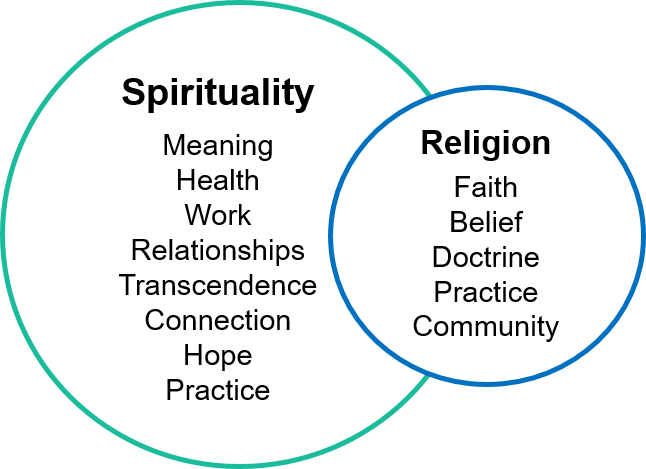A few weeks ago, I posted a simple thought from my mind: “Religious trauma really sucks.” Honestly, that could be the entire post. We could just leave it there because, if you know, you know.
For those of us who are still untangling religious trauma, or for those who wonder why spiritual abuse leaves such a lasting mark, I want to take this week’s post to explain why it sucks.
For many of us who participated in high-control religious environments, religion seemed to take over every aspect of our life. We received messages about the supposed unworthiness of our humanity, we were given the fear of eternal conscious torment, and we were told that a person died for us. However, all of this could be avoided if we uttered specific words in a particular posture all before we lost our baby teeth.
This sucks.
As we got older, we went to camps, more Sunday schools, and mid-week youth events. While hormones were raging, we were taught to be dismissive of our sexuality, as if our self-denial made god happy. On top of all these to-dos, some of the folks like me were invited to attend a “special theology class” where we learned systematic theology. The first topic? Angels, demons, and hell. Like… what?
Not only were we discouraged from listening to our bodies (hello, purity culture), we were also told not to associate with people or friends that weren’t part of our specific faith tradition. We were also told to bribe those friends to come to said groups in exchange for free pizza. (I heard of one youth group that had a playstation raffle for “bringing a friend to church.). That is disingenuous.
And it sucks.
We went to bible colleges to earn the coveted “Mrs.” degree (this is a horribly sexist saying that suggests women only go to college to get married). We then felt like failures for graduating without a spouse, legally able to drink, and still discouraged from having sex. We were graded on how well we could discuss the bible, of which I am guilty of being an adjunct professor for those classes. And I am sorry. We went to chapel three times a week, prayed before meals, had “accountabil-a-buddies” (these were people who would punch you in the arm if you had a purity mishap), and paid a lot more in tuition than the state schools. I still have student loan payments and those really suck.
Looking back on these experiences, from childhood to young adulthood, I can now see the overarching patterns of how this system was designed. The harm wasn’t random; it was the result of core dysfunctions.
Here are the threads I see running through it all:
We were discipled into disembodiment. We were taught to be skeptical of our bodies, our hormones, our instincts, and our reasoning.
We weren’t given any other alternatives. This is called hermeneutical injustice. It is most clearly defined as “when a person or group lacks the concepts, language, or knowledge to make sense of and communicate their social experiences.” For example, you might have felt a deep sense of shame about purity culture but only given the language of “sin” or “lust” to describe natural attraction. We weren’t taught about consent, bodily autonomy, or any of the words to explain why it was harmful. Without the right words, you can’t even begin to identify the problem.
We were isolated into a community and a culture. And we got “in trouble” (not legally, obviously, but certainly legalistically).
When I first became a chaplain, I was inspired to participate in a palliative care chaplaincy course. I loved the learning that took place there, and I gained so much more language for my experiences of loss along the way.
In one of the modules of religion and meaning-making, we were presented with a graphic similar to the one here:
Let’s define the circles:
Spirituality is the experience of connection, meaning making, purpose, wonder, and core values. It is where we find our truest self. I like to think of this as the human experience as a whole.
Religion is a container for some of these experiences. They are shared and agreed upon beliefs, practices, and offer a sense of camaraderie, and in the best case, friendship.
In healthy contexts, these two circles have a comfortable, partial overlap. You can move between them. But in high-control religious environments, the goal is to force these two circles into one.
Religion attempts to completely colonize spirituality.
And this is why we are invited to “witness to people at work” (also known as proselytizing or evangelizing). We are told to put our hope and identity in god and if there was ever a problem with “feeling that connection with god” it was somehow our fault. The container tries to become the entire experience.
The experience that so many people are faced with now is untangling the web. There is a growing recognition in the world of psychology and theology that the beliefs, faith tradition, and practices of the doctrine were harmful and antithetical to a vibrant spirituality.
Many people who finally leave church are left floundering because a particular set of beliefs, practices, routines, and people who claimed to be our help were actually the sourced of our harm.
The question is almost deafening:
Who am I, truly, outside high-control religion?
My offering to you is this:
You are magnificent.
As an embodiment practice, I invite you to participate in the following breathing and/or journaling exercise:
Place your hand over your heart.
Take one slow, full breath.
Say softly, “I am allowed to be whole.”
Ask yourself, What does wholeness get to mean for me now?
I would love to hear your reflections below.




The FERVOUR with which I would take myself up to the altar as a youngster. I'm still unpacking it all. Actually, I'm only beginning to unpack it all. I have quite an inner resistance to dealing with this part of my life. But, thanks to you and this diagram, I was driving to work the other day after bringing women together for a book club in my home and saw a beautiful sunrise and found myself thinking, maybe this is what fellowship and spirituality can be. And that is the first time since forever that I've even thought it could exist for me. So, thank you. I may have room to unpack and rebuild after all.